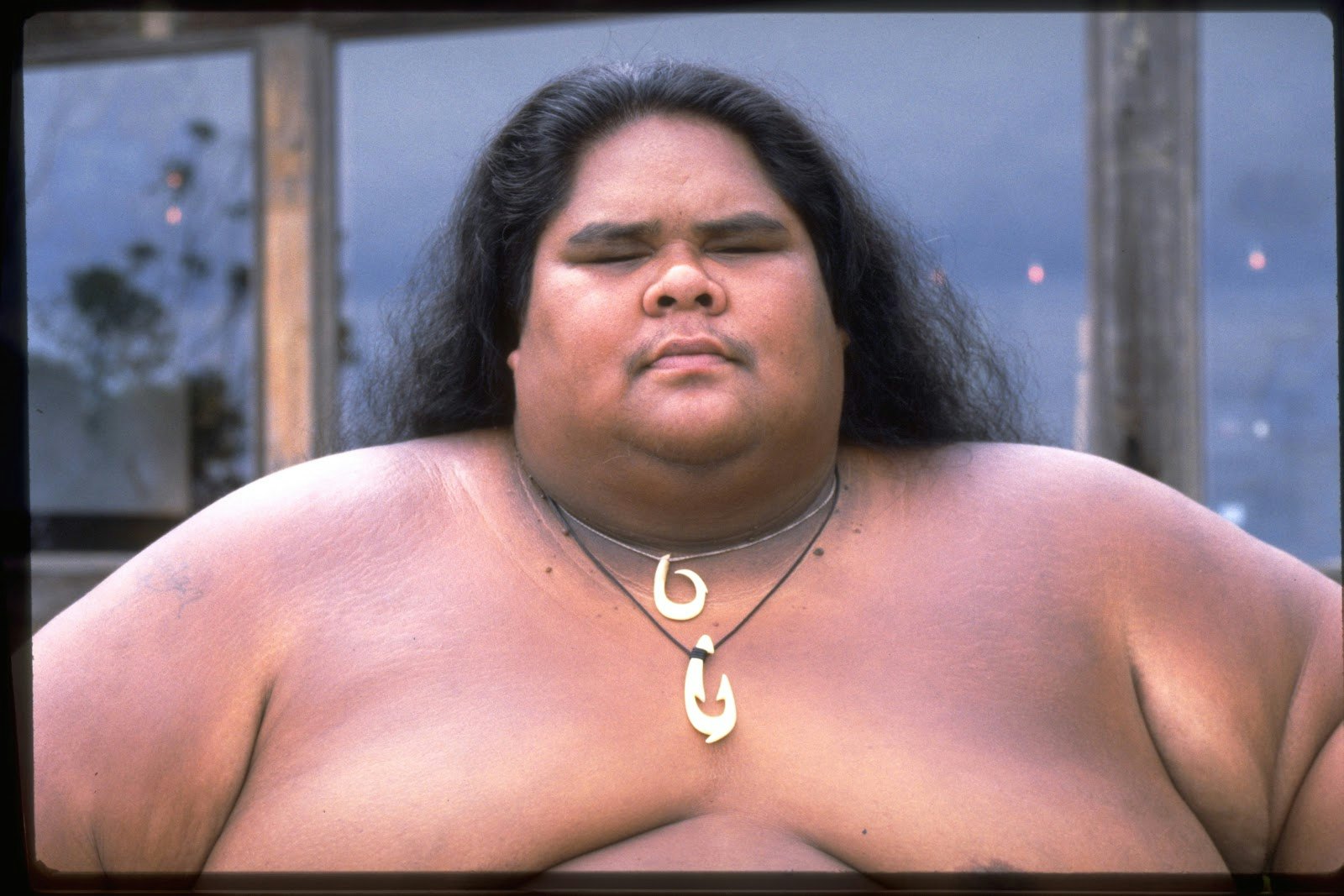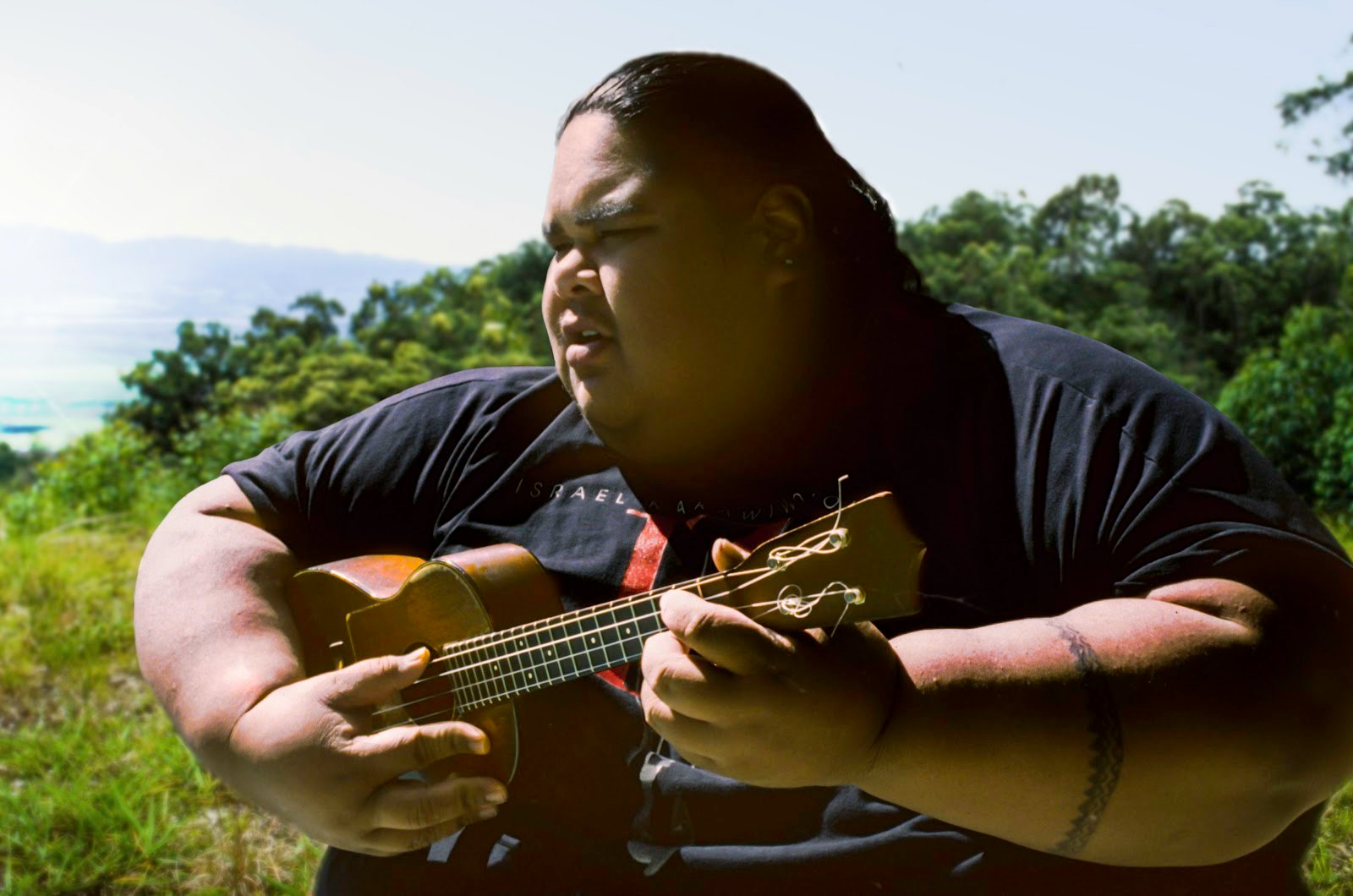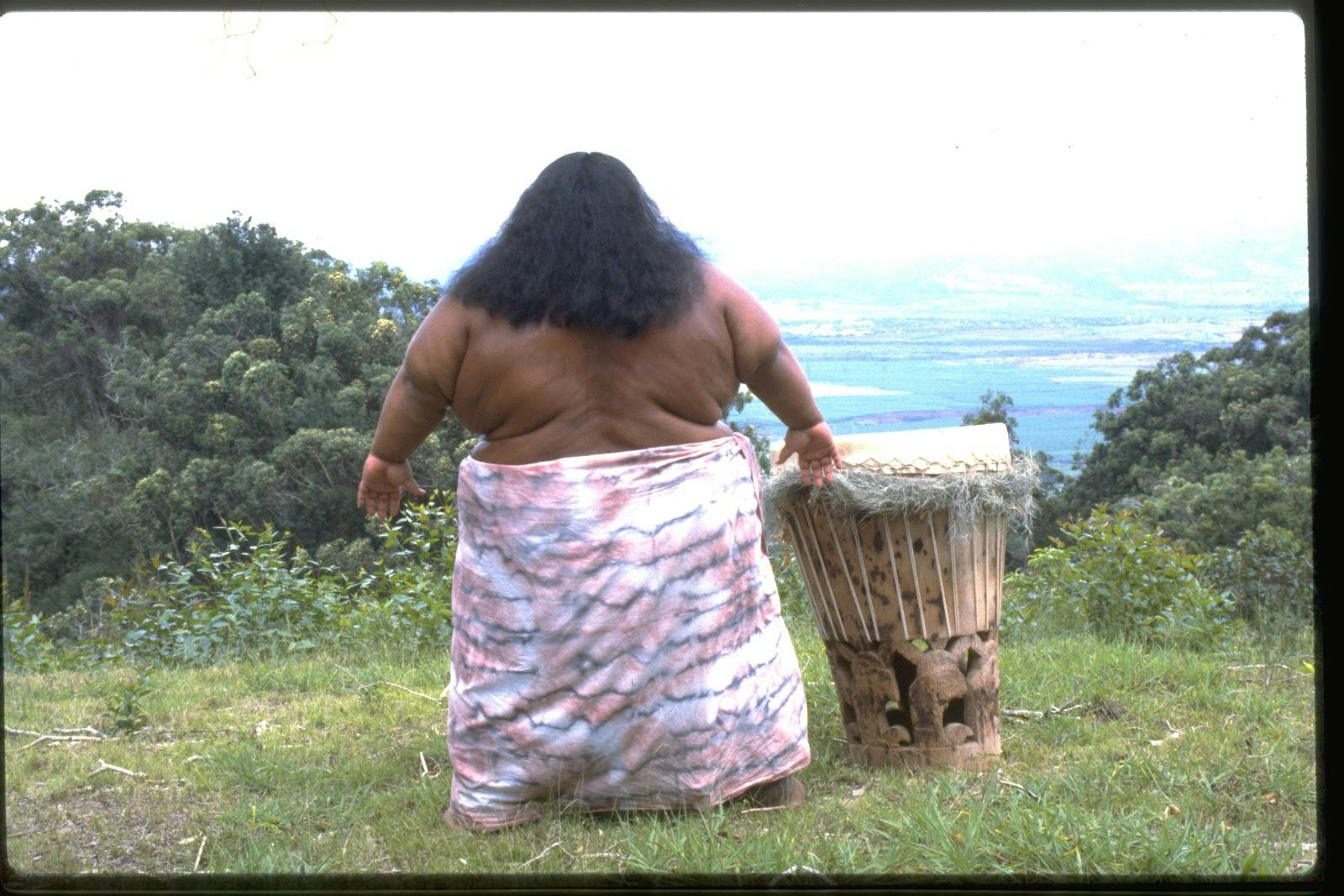
Israel "Iz" Kamakawiwoʻole was a singer and activist of Hawaiian ancestry who embodied the words "gentle giant." Remembered as a "really sweet man" by those who knew him, Kamakawiwo'ole died in 1997, at the age of 38.
On Wednesday, May 20, 2020, Google celebrated Asian Pacific American Heritage Month, on what would have been his 61st birthday, with a two-minute animated music video (directed by Sophie Diao) set to Kamakawiwo'ole's most famous song: A ukelele cover of "Somewhere Over the Rainbow," first made famous by Judy Garland for the 1938 movie The Wizard of Oz.
While Kamakawiwo'ole remains an icon for Hawaiians and Hawaiian music, the story of how he recorded his most popular song — over 147 million streams on Spotify — is nothing short of legendary.
Who was Israel Kamakawiwo'ole?
Israel Kamakawiwo'ole was a Hawaiian singer born in Honolulu in 1959. He grew up on the island Ni'ihau, which to this day remains the only island with a 100 percent Hawaiian population and cannot be visited without an invitation from a resident. It was here, where Kamakawiwo'ole spent summers with his grandparents, grew deeply connected to his Hawaiian heritage.
His uncle was Moe Keale, himself a musician and actor who starred as Detective Truck Kealoha in the original version of the CBS cop drama Hawaii Five-O. Because of his musical family — who were friends with legends like Peter Moon and Don Ho — Kamakawiwo'ole was exposed to music at an early age. In a 2011 interview with NPR, musician and friend Del Beazley said the first time people heard Kamakawiwo'ole sing, which happened at a graduation party, the room "stopped."
"As soon as Israel Kamakawiwo'ole opened his mouth and sang, that whole place went quiet," Beazley remembered. "Every great singer has something special. It's almost a nasal or head tone. And that thing just cut right through the air, stopped everybody in their tracks."
Kamakawiwo'ole's music career took off from there, forming the band Mākaha Sons with his brother Skippy in 1976. After years of popularizing Hawaiian music, Kamakawiwo'ole recorded his solo album Ka 'Ano'i in 1990. Track seven on the album is the upbeat Jawaiian track, "Over the Rainbow/What a Wonderful World," a medley combining the songs "Somewhere Over the Rainbow" and "What a Wonderful World," made famous by Louis Armstrong in 1967.

"One Take, and It Was Over"
Although Kamakawiwo'ole's 1990 solo album included "Over the Rainbow/What a Wonderful World," it's not the version that most people remember. The acoustic version, with Kamakawiwo'ole on vocals and ukelele, was recorded a few years prior and kept in a recording studio's archives until the release of his 1993 follow-up, Facing Future.
In 1988, recording studio manager Milan Bertosa was wrapping a long day at 3 a.m. when the phone rang. A regular client had called on behalf of Kamakawiwo'ole, who had an idea he desperately wanted to see through. Bertosa was then put on the phone with Kamakawiwo'ole, whom Bertosa remembers as "this really sweet man, well-mannered, just kind."
"Please, can I come in?" Kamakawiwo'ole kindly asked. Bertosa relented.
About 15 minutes later, there's a knock on Bertosa's door. "And in walks the largest human being I had seen in my life," Bertosa told NPR. Throughout his life, Kamakawiwo'ole suffered obesity, weighing as much as 757 pounds.
"The first thing at hand is to find something for him to sit on," Bertosa remembered. Someone from building security gave Israel a big steel chair. "Then I put up some microphones, do a quick soundcheck, roll tape, and the first thing he does is 'Somewhere Over the Rainbow.' He played and sang, one take, and it was over." The next day Bertosa gave a copy for Israel and kept the master for himself. Over time, he found himself playing Kamakawiwo'ole's recording for family and friends. "It was that special," he said. "Whatever was going on that night, he was inspired. It was like we just caught the moment."
In 1993 Bertosa was working on Kamakawawiwo'ole's next album, Facing Future. On the last few days of recording, he felt something was missing. So Bertosa dug up that 3 a.m. recording, played it for producer Jon de Mello (who was won over), and it was added to Facing Future. The album became one of the highest-selling Hawaiian music albums of all time, certified platinum by the Recording Industry Association of America in 2005. The song itself has become iconic, used in countless commercials, TV shows (ER, Charmed), and movies (Meet Joe Black, 50 First Dates).

Life and Death
While Kamakawiwo'ole is remembered for his voice, there was pain behind it. As an activist, Kamakawiwo'ole championed Hawaiian sovereignty. He believed that his fellow natives were second-class citizens in their own land, pushed to the margins as a result of the tourism industry. In his song "Hawai'i '78" the artist summarized his ideals, imagining the disappointment of his ancestors seeing modern Hawaii:
“If just for a day our king and queen / Would visit all these islands and saw everything / How would they feel about the changes of our land? / Could you just imagine if they were around / And saw highways on their sacred grounds / How would they feel about this modern city life? / Tears would come from each others eyes / As they would stop to realize / That our people are in great great danger now / How, would they feel, could their smiles be content, then cry.”
In 1997, Kamakawiwo'ole died at age 38 due to medical complications over his weight. The Hawaiian flag flew at half staff on the day of his funeral. Scenes of Kamakawiwo'ole's funeral were included in the posthumous music video for "Somewhere Over the Rainbow."
To this day, Kamakawiwo'ole remains celebrated for his music and activist for his fellow people. Bezley, Kamakawiwo'ole's friend who was present at his funeral, told NPR what he thinks his friend would have thought of the ceremony.
"All the big semi-trucks on the island of Oahu had their air horns blowing. And from the ocean we could hear the echo, the bounce off the mountain ranges. This whole island came together just to say goodbye to this one Hawaiian. But I tell you, he would have been laughing."







